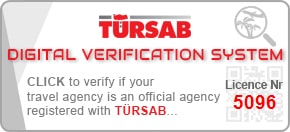
What is the Possible Treatment for Addiction?
Addiction is a complicated but treatable condition that affects millions all over the globe. Whether it's drug, alcohol, or behavioural addiction, the path to recovery can be challenging but achievable. Addiction alters brain function and behaviour, which makes it difficult for people to quit using substances despite knowing about the negative consequences. However, with proper treatment for drug addicts, it is possible to regain control over one's life.
Patients with drug addiction and other addictions have various of treatment options at their disposal. These alternatives, which each focus on a distinct aspect of addiction, include medication-assisted therapies and behavioural therapies. Since every individual's circumstances are different, success requires tailored treatment. The best chance for long-term recovery is a drug addiction treatment plan tailored to the needs of the person.
Behavioural Therapies
Cognitive Behavioural Therapy (CBT):
CBT aids patients identify and change negative thought patterns that lead to substance abuse. By learning to identify triggers and develop healthier coping strategies, patients can reduce the likelihood of relapse. CBT also looks into underlying mental health issues like anxiety or depression, which often co-exist with addiction.
Contingency Management is a approach that employs the use of incentives to support healthy behaviour and encourage people to stay away from drugs. Patients are offered material rewards for attending therapy sessions and maintaining sobriety, like coupons or small gifts. Using this method has been shown to lower relapse rates and increase treatment retention.
Motivational Interviewing:
This method enables patients identify the reasons they want to stop smoking. This therapy enables patients to explore their values and life goals, rather than pressuring them to make changes. It is a patient-centred strategy that gives people the ability to direct their own healing, increasing the likelihood of long-term sobriety.
These therapies are vital as they target the psychological aspects of addiction. Addressing both thought patterns and behaviours creates a foundation for long-term recovery.
Medication-Assisted Treatment
Medication-assisted treatment (MAT) is another critical choice in the treatment for drug addicts, specifically for those struggling with opioid or alcohol addiction. Medications can aid in lowering cravings and withdrawal symptoms, which makes it easier for patients to focus on recovery.
For opioid addiction, medications like Methadone, Buprenorphine, and Naltrexone are used to stabilize brain chemistry and block the euphoric effects of drugs. These medications aid individuals to gradually taper off opioids, reducing the risk of relapse. Similarly, for alcohol addiction, medications like Disulfiram and Acamprosate support abstinence by reducing cravings or causing reactions that are unpleasant when alcohol is consumed.
Medications become more effective when combined with behavioural therapies, addressing both the physical and psychological components of addiction for comprehensive recovery.
Support Groups and Counselling
Counselling and support groups are crucial to the recovery process from addiction because they offer both psychological and emotional support. The foundation of Narcotics Anonymous (NA) and Alcoholics Anonymous (AA) is shared experiences and peer support. Through these programs, people can develop a strong support system of like-minded individuals who can relate to their challenges, fostering a sense of community and accountability.
Group and family treatment are equally important because addiction often impacts the entire family. With group counselling, people can readily share their experiences and gain knowledge from others facing comparable challenges. On the other side, family counselling fosters healing in relationships and teaches family members how to assist their loved one's recovery without condoning negative behaviour.
Rehabilitation Programs
Inpatient rehab offers a controlled, immersive setting for people seeking drug addiction therapy. Patients staying in these residential programs receive round-the-clock medical attention, thorough therapy, counselling, and living in a restricted surroundings. When it comes to people who are chronically addicted or in need of intensive care, this method works quite well.
Outpatient rehab helps patients to get therapy while carrying out their regular activities, such going to work or school. In order to enable patients to return home in the evening, outpatient programs provide therapy and counselling during the day.
Both inpatient and outpatient rehab programs provide a controlled and encouraging setting that helps patients concentrate on their rehabilitation without being sidetracked or provoked by daily life.
Conclusion
Addiction treatment involves combining behavioural therapies, medication, support groups, and rehabilitation programs personalised to meet the unique needs of each individual. There is no universal solution, and success hinges on finding the proper treatment for drug addicts. Treatment for drug addicts requires patience, support, and professional guidance.
If you or someone you know is struggling with addiction, seeking professional help is important. In Turkey, addiction treatment is more affordable, offering high-quality care at lower costs in Turkey. Ongoing support and long-term care are vital for maintaining sobriety and achieving a healthier, addiction-free life.
Stroke Rehabilitation Price Turkey



